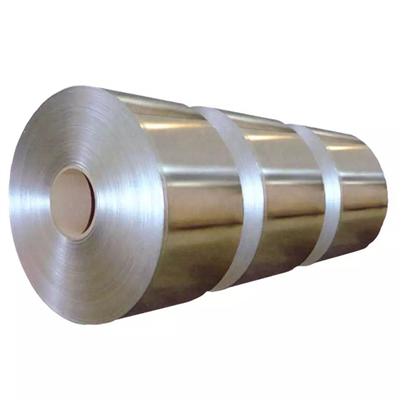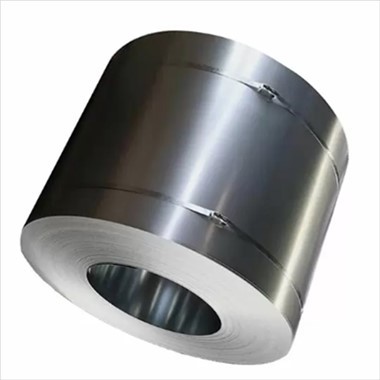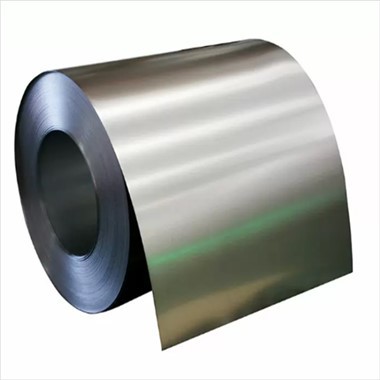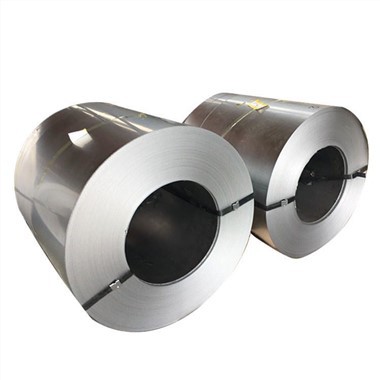Stainless Steel Coil
Why Choose Us
Global Reach
Our products are exported to many countries around the world, making us a global player in the steel industry.
Quality Control
Our company has implemented a strict quality control system to ensure that all products meet the highest standards.
Competitive Pricing
We offer competitive pricing without compromising on the quality of our products.
24H Online Service
24 hours services quickly reply during the whole business process and after business.
What is Stainless Steel Coil
Stainless steel coil refers to a type of metal material that is formed by rolling thin sheets or strips of stainless steel into a spiral shape. These coils are commonly used in a wide range of manufacturing applications, including construction, automotive manufacturing, electrical equipment, and more. Stainless steel coils are prized for their corrosion-resistant properties and high strength, making them an ideal material choice for many industrial applications. They are available in a variety of grades and thicknesses to suit different needs.
Corrosion-resistant: Stainless steel coil has a high level of resistance to rust and corrosion, making it an ideal material for use in harsh environments.
Durable: Stainless steel coils are long-lasting, and they can withstand significant wear and tear without degrading.
Easy To Clean: Stainless steel is easy to clean, and it resists stains and other forms of soiling, making it an ideal material for use in applications where cleanliness is essential.
Aesthetic Appeal: Stainless steel coil has a distinctive look and feel that many people find appealing. It can be polished to a high shine, making it an attractive material for use in a variety of decorative applications.
Versatile: Stainless steel coil can be shaped and formed into a wide range of shapes and sizes, making it suitable for use in a broad range of applications.
Sustainable: Stainless steel is a highly sustainable material, and its long lifespan means that it can be used for many years without requiring replacement. This makes it an environmentally friendly choice.
Temperature Resistant: Stainless steel coil can withstand temperature fluctuations, making it suitable for use in extreme environments where other materials may be damaged.

Stainless Steel Coil is created by winding or coiling a completed steel product, such as a sheet or strip, after it has been rolled. The width of the steel coil is substantially greater than the thickness. Steel coils can be categorized as Hot Rolled, Cold Rolled, or Galvanised, depending on the production process.
● Stainless steel coil is used in the marine and shipbuilding industries.
● Transportation and traffic use stainless steel coils.
● The stainless steel 201 coil is used in the oil and gas sector.
● Chemical and petrochemical sectors both employ SS 304 Coil.
● Utilisation of SS 316 Coil in the Telecom and Power Sectors
● Municipal and Utility Stainless Steel Coil
● SS 904L Coil is used in the subsea and aerospace industries.

Stainless Steel Coil Features
Great Performance
1
>>
Dimensional Accuracy
2
>>
Rust Resistance
3
>>
Purpose specific
4
>>
Consistent
5
>>
Durable
6
Durable
Stainless Steel 201 Coil
Suresh Steel Centre is the most reputable manufacturer, supplier, and exporter of premium stainless steel 201 coils in a variety of sizes and specifications. We manufacture these stainless steel 201 coils in state-of-the-art facilities with quality components.
Stainless Steel 304 Coil
Suresh Steel Centre is the most reputable manufacturer, supplier, and exporter of premium stainless steel 304 coils in a variety of sizes and specifications. We manufacture these stainless steel 304 coils at state-of-the-art production facilities with premium components.
Stainless Steel 316 Coil
Suresh Steel Centre is the most reputable manufacturer, supplier, and exporter of premium stainless steel 316 coils in a variety of sizes and specifications. We manufacture these stainless steel 316 coils in state-of-the-art production facilities with premium components.
Our company has been present for over 15 years in electric vehicle business
Raw Material Selection: The first step in stainless steel coil production is selecting the appropriate raw material. Various grades and types of stainless steel are available, and the selection depends on the intended end-use and application.
Casting: The molten stainless steel is then poured into a casting mold to form a slab of stainless steel.
Hot Rolling: In the next step, the raw material is heated above its recrystallization temperature and passed through hot rolling mills. The stainless steel is reduced in thickness by passing it through a series of rollers, which apply pressure and compression to the material. This process also ensures that the stainless steel remains homogenous and uniform.
Annealing: After hot rolling, the stainless steel is annealed to soften it and make it ductile. The stainless steel coils are placed in a furnace and heated above their recrystallization temperature before being cooled slowly. This process helps to relieve stress and reduce grain size in the stainless steel, making it more malleable.
Cold Rolling
The annealed coils are then passed through cold rolling mills that apply pressure and compression to the material to make it thinner and more precise. Cold rolling also improves the surface finish and dimensional accuracy of the stainless steel coils.
Slitting
The stainless steel coils are finally slit into smaller widths and lengths that meet customer specifications. The coils are cut using high-precision slitting machines that ensure accuracy and consistency throughout the process.
Surface Treatment
To remove any surface defects and improve the appearance of the stainless steel, the coils are subjected to surface treatments such as pickling, grinding, and polishing.
Final processing
The slitted stainless steel coils are given their final finish and are inspected for any defects or imperfections before being shipped to customers.
What Are the Surface Treatments of Stainless Steel Coil
There are several surface treatments that can be applied to stainless steel coil

Finish: This is the most common finish and is also known as hot-rolled, annealed, and pickled. It has a rough, dull, and non-reflective surface.
Finish: Also known as a cold-rolled and annealed finish, it has a smooth and shiny surface.
Finish: Similar to No.2D finish but with a higher reflectivity level.
Finish: It has a semi-reflective finish with a rough texture.
Finish: It has a brushed or satin finish and is often used for decorative purposes.
Finish: It has a mirror-like finish and is the most reflective finish available.
BA Finish: It has a bright annealed finish and is the smoothest and most reflective finish available.
PVC Coating: A protective film is applied to the surface to protect it during transportation, storage, and installation.
Embossing: A pattern or texture is applied to the surface through mechanical or chemical processes.
Passivation: A chemical process that removes impurities from the surface of stainless steel and improves its corrosion resistance.

Stainless steel coils are widely used in various industrial sectors as well as in household goods. Some of the applications of stainless steel coils are:
Construction Industry: Stainless steel coils are used in construction for roofing, cladding, and framing of buildings. They are also used for forming structural members such as bars, pipes, and plates.
Marine Industry: Stainless steel coils are used in the marine industry for manufacturing boat and ship components such as hulls, decks, and superstructures.
Electrical Industry: Stainless steel coils are used in the electrical industry for manufacturing electrical components such as transformers, capacitors, and inductors.
Aerospace Industry: Stainless steel coils are used in the aerospace industry for manufacturing aircraft components, such as engines, exhaust systems, and structural members.
Packaging Industry: Stainless steel coils are used in the packaging industry for manufacturing food packaging containers and trays.
Kitchen Appliances: Stainless steel coils are used in the manufacture of kitchen appliances such as refrigerators, ovens, and dishwashers.
Medical Industry: Stainless steel coils are used in the medical industry for manufacturing surgical instruments and implants.
Automotive industry:Stainless steel coils are used in the automotive industry for manufacturing car parts such as exhaust systems, mufflers, and catalytic converters.
Things to Consider When Purchasing Stainless Steel Coils
Corrosion Resistance
This topic of corrosion resistance is extremely important to know when purchasing stainless steel products. The standard grade most commonly used for food grade applications is AUSTENITIC STAINLESS STEEL. Due to its chemistry, austenitic stainless steels show tremendous resistance to basic corrosive environments containing only salt and water. Specifically, our 304 — grades (including but not limited to), include 18/22, 20/30, 15/25, and 10/15. Use the proper grade based on your installation environs; atmospheric conditions such as air quality, moisture content, and acidity levels can greatly increase the corrosion rate of a product.
Resistance To Heat
Many More customers choose stainless steel coils because they can use them everywhere without any concern about the corrosion. Temperature is a factor to consider when purchasing stainless steel products. High temperatures, such as in a furnace environment of (900–1175C) can increase the corrosion of stainless steel products. Moreover, high temperature exerts high pressure on the products. So you will have to purchase heat-resistant stainless steel, such as 253MA and 321MA if the temperature is always high.
Cryogenic Resistance
Austenitic stainless steel is more efficient at low temperatures. They can maintain a higher tensile strength at low temperatures compared to ambient temperatures. Regardless of degrading and toughness, such steel is suitable for low temperatures. Cryogenic resistance means that the materials ability to withstand decreased material temperature after exposure to increasing pressures. You must check cryogenic resistance to know which one is better for you.
Material Selection
Common materials for Stainless steel coil strips include 304, 316, 430, etc. Different materials have different corrosion resistance, strength and thermal conductivity. Choose the appropriate material according to the use environment and needs.
Specifications And Sizes
Stainless steel coils come in a variety of specifications and sizes, and the appropriate specifications can be selected according to actual needs. It is necessary to pay attention to whether the width, thickness, length and other parameters of the rolled material meet the project requirements.
Surface Treatment
There are two types of surface treatments for stainless steel coils: coiling and cutting. Select the appropriate surface treatment based on specific use.
Quality Inspection
When purchasing stainless steel coils, you should check the quality certification and testing reports provided by the supplier. Ensure that the materials meet the standards and the quality is reliable.
Price Comparison
The price of stainless steel coils will vary depending on factors such as material, specifications, quality, etc. It is recommended to compare prices from multiple suppliers to get better value for money.
What are the Main Parts of Stainless Steel Coil
The main parts of a stainless steel coil include
Core
This is the central part of the coil that provides support and stability. It is usually made of a high-quality steel material.


Edges
These are the sides of the coil that help to prevent any damage or deformation during handling or transport.
Surface
This refers to the outer layer of the coil that comes in contact with the environment. It is usually polished or treated to provide a smooth, corrosion-resistant surface.


Width and Thickness
The size of the coil is also an important factor, as it determines the amount of material that can be used for a particular application. The width and thickness of the coil are usually specified according to the customer's requirements.
Finish
The surface finish of the coil can also be specified by the customer, such as a mirror or matte finish.


Packaging
The coil is usually packaged in a way that provides protection during transport and handling. Common packaging options include cardboard boxes, wooden pallets, or steel frames.
How to Store a Stainless Steel Coil
Clean the coil thoroughly by wiping it clean with a dry cloth to prevent any rust or dirt from sticking to the surface.
Choose a dry, cool, and well-ventilated storage area where the coil can be kept flat and not in contact with the ground or any materials that may damage its finish.
Coil the stainless steel onto a special storage rack, making sure that each coil is separate and not tangling with each other.
Cover the coil with a protective cover, such as a plastic sheet or tarp, to protect it from moisture, dust, and other elements that may cause damage.
Alternatively, you can also choose to wrap the coil in a material such as a cloth or paper that will absorb any moisture and prevent any damage to the surface.
Label the coil with its dimensions, date of manufacture, and any other relevant information that may be useful when it's time to use the coil.
Properties of Stainless Steel Coil
Some properties of stainless steel coil include
Corrosion Resistance - Stainless steel coil is highly resistant to corrosion, making it an ideal material for use in harsh environments.
High Strength - Stainless steel coil is known for its high strength-to-weight ratio, making it strong and durable.
Heat Resistance - Stainless steel coil can withstand high temperatures, making it useful in high-temperature applications.
Easy To Clean - Stainless steel coil is easy to clean and maintain, making it a popular material in the food and medical industries.
Aesthetic Appeal - Stainless steel coil has a shiny, reflective surface that adds an aesthetic appeal to products.
Versatility - Stainless steel coil can be used in a variety of applications, including cookware, medical equipment, and construction.

Our Factory
Tianjin TGCC Co.,Ltd is a professional manufacturer engaged in the research, development, production, sale and service of stainless steel sheet, stainless steel pipes, stainless steel profile, stainless steel coils. We are located in Tianjin with convenient transportation access.
Certificate


FAQ
Q: What is stainless steel coil?
Q: What are the common grades of stainless steel used for coil?
Q: What are the different sizes and thicknesses of stainless steel coil available?
Q: What are the common applications of stainless steel coil?
Q: What are the advantages of using stainless steel coil?
Q: What is the difference between cold rolled and hot rolled stainless steel coil?
Q: Is stainless steel coil magnetic?
Q: What is the difference between 304 and 316 stainless steel coil?
Q: What is the difference between brushed and polished stainless steel coil?
Q: Can stainless steel coil be welded?
Q: What is the minimum order quantity for stainless steel coil?
Q: What is the lead time for stainless steel coil?
Q: What is the price range for stainless steel coil?
Q: Can stainless steel coil be customized?
Q: What is the difference between finish types for stainless steel coil?
Q: How is stainless steel coil transported?
Q: How is stainless steel coil stored?
Q: What is the lifespan of stainless steel coil?
Q: How is stainless steel coil maintained?
Q: What are the safety precautions when handling stainless steel coil?















